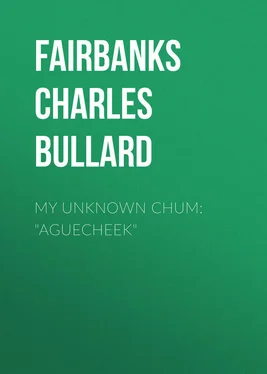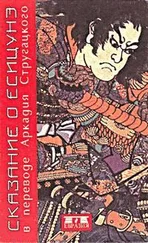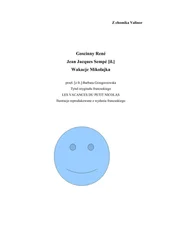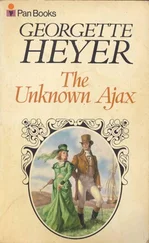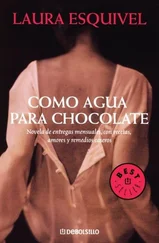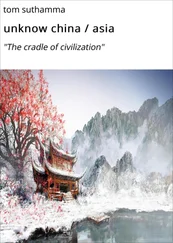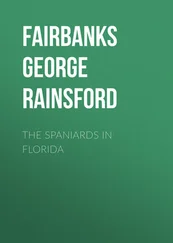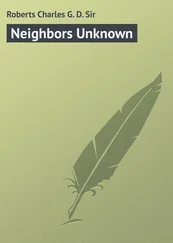Charles Fairbanks - My Unknown Chum - Aguecheek
Здесь есть возможность читать онлайн «Charles Fairbanks - My Unknown Chum - Aguecheek» — ознакомительный отрывок электронной книги совершенно бесплатно, а после прочтения отрывка купить полную версию. В некоторых случаях можно слушать аудио, скачать через торрент в формате fb2 и присутствует краткое содержание. Жанр: foreign_antique, foreign_prose, essays, на английском языке. Описание произведения, (предисловие) а так же отзывы посетителей доступны на портале библиотеки ЛибКат.
- Название:My Unknown Chum: Aguecheek
- Автор:
- Жанр:
- Год:неизвестен
- ISBN:нет данных
- Рейтинг книги:4 / 5. Голосов: 1
-
Избранное:Добавить в избранное
- Отзывы:
-
Ваша оценка:
- 80
- 1
- 2
- 3
- 4
- 5
My Unknown Chum: Aguecheek: краткое содержание, описание и аннотация
Предлагаем к чтению аннотацию, описание, краткое содержание или предисловие (зависит от того, что написал сам автор книги «My Unknown Chum: Aguecheek»). Если вы не нашли необходимую информацию о книге — напишите в комментариях, мы постараемся отыскать её.
My Unknown Chum: Aguecheek — читать онлайн ознакомительный отрывок
Ниже представлен текст книги, разбитый по страницам. Система сохранения места последней прочитанной страницы, позволяет с удобством читать онлайн бесплатно книгу «My Unknown Chum: Aguecheek», без необходимости каждый раз заново искать на чём Вы остановились. Поставьте закладку, и сможете в любой момент перейти на страницу, на которой закончили чтение.
Интервал:
Закладка:
I returned to Brussels in the afternoon, meditating on the scenes I had visited, and repeating the five stanzas of Childe Harold in which Byron has commemorated the battle of Waterloo. In the evening I read, with new pleasure, Thackeray's graphic Waterloo chapter in Vanity Fair, and dreamed all night of falling empires and "garments rolled in blood." And now I turn my face towards Italy.
GENOA AND FLORENCE
It is a happy day in every one's life when he commences his journey into Italy. That glorious land, "rich with the spoils of time" above all others, endeared to every heart possessing any sense of the beautiful in poetry and art, or of the heroic in history, rises up before him as it was wont to do in the days of his youth, when Childe Harold's glowing numbers gave a tone of enthusiasm to his every thought, and filled him with longings, for the realization of which he hardly dared to hope. For the time, the commonest actions of the traveller seem to catch something of the indescribable charm of the land to which he is journeying. The ticketing of luggage and the securing of a berth on board a steamer – occupations which are not ordinarily considered particularly agreeable – become invested with an attractiveness that makes him wonder how he could ever have found them irksome. If he approaches Italy by land from France or Switzerland, with what curiosity does he study the varied features of the Piedmontese landscape! He recognizes the fertile fields which he read about in Tacitus years ago, and endeavours to find in the strange dialect which he hears spoken in the brief stops of the diligence to change horses, something to remind him even faintly of the melodious tongue with whose accents Grisi and Bosio had long since made him familiar. Meanwhile his imagination is not idle, and his mind is filled with historical pictures drawn from the classical pages which he once found any thing but entertaining. Though he may be fresh from the cloudless atmosphere of fair Provence, he fancies that the sky is bluer and the air more pure than he ever saw before.
It is a great advantage to enter Italy from the sea. In this way you perceive more clearly the national characteristics, and enter at once into the Italian way of life. You avoid in this way that gradual change from one pure nationality to another, which is eminently unsatisfactory. You do not weary yourself with the mixed population and customs of those border towns which bear about the same relation to Italy that Boulogne, with its multitude of English residents, bears to France. It was my good fortune when I first visited Italy, years ago, to make the voyage from America direct to the proud city of Genoa. Fifty-five weary days passed away before the end of the voyage was reached. Twenty-six of those days were spent in battling with a terrible north-easter, before whose might many a better craft than the one I was in went down into the insatiable depths. My Italian anticipations kept me up through all the cheerlessness of that time. The stormy sky, the wet, the cold, and all the discomfort could not keep from my mind's eye the vineyards, palaces, churches, and majestic ruins which made up the Italy I had looked forward to from childhood. My first sight of that romantic land did somewhat shock, I must acknowledge, my preconceived notions. I was called on deck early one December morning to see the land which is associated in most minds with perpetual sunshine. Facing a biting, northerly blast, I saw the maritime range of the Alps covered with snow and looking as relentless as arctic icebergs. My disappointment was forgotten, however, two mornings after, when Genoa, wearing "the beauty of the morning," lay before our weather-beaten bark. It was something to remember to my dying day – that approach to the city of palaces. Surrounded by its amphitheatre of hills crested on every side with heavy fortifications, its palaces, and towers, and domes, and terraced gardens rising apparently from the very edge of that tideless sea, there sat Genoa, surpassing in its splendour the wildest imaginings of my youth. I shall never forget the thrill that ran through every fibre of my frame, when the sun rose above those embattled ridges, and poured his flood of saffron glory over the whole wonderful scene, and the bells from a hundred churches and convents rang out as cheerily as if the sunbeams made them musical, like the statue in the ancient fable, and there was no further need of bell ropes. The astonishment of Aladdin when he rubbed the lamp and saw the effects of that operation could not have equalled mine, when I saw Genoa put on the light and life of day like a garment. It was like a scene in a theatrical pageant, or one of the brilliant changes in a great firework, so instantaneous was the transition from the subdued light and calmness of early morning to the activity and golden light of day. All the discomfort of the eight preceding weeks was forgotten in the exultation of that moment. I had found the Italy of my young dreams, and my happiness was complete.
This time, however, I entered Italy from the north. I pass by clean, prosperous-looking Milan, with its elegant churches, and its white-coated Austrian soldiers standing guard in every public place. I have not a word of lament to utter at seeing a stranger force sustaining social order there. It is better that it should be sustained by a despotism far more cruel than that of Austria, than to become the prey of that sanguinary anarchy which is dignified in Europe with the name of republicanism. The most absolute of all absolute monarchies is to be preferred to the best government that could possibly be built upon such a foundation as Mazzini's stiletto. Far better is the severest military despotism than the irresponsible tyranny of those who deny the first principles of government and common morality, and who seem to consider assassination the chief of virtues and the most heroic of actions. I pass by that magnificent cathedral, with its thousands of pinnacles and shining statues piercing the clear atmosphere like the peaks of a stupendous iceberg, and its subterranean chapel, glittering with precious metals and jewels, where, in a crystal shrine, repose the relics of the great St. Charles, and the lamps of gold and silver burn unceasingly, and symbolize the shining virtues of the self-forgetful successor of St. Ambrose, and the glowing gratitude of the faithful Milanese for his devotion to the welfare of their forefathers.
I lingered among the attractions of Genoa for a few days. I enjoy not only those magnificent palaces with their spacious quadrangles, broad staircases, and sculptured façades, but those narrow, winding streets of which three quarters of the city are composed – so narrow indeed that a carriage never is seen in them, and a donkey, pannier-laden, after the manner of Ali Baba's faithful animal, compels you to keep very close to the buildings. Genoa is the very reverse of Philadelphia. Its streets are as narrow and crooked as those of Philadelphia are broad and straight. The Quaker City was always a wearisome place to me. Its rectangular avenues – so wide that they afford no protection from the wintry blast nor shelter from the canicular sunshine, and as interminable as a tale in a weekly newspaper – tire me out. They make me long for something more social and natural than their straight lines. Man is a gregarious animal. It is his nature to snuggify himself. But the Quaker affects a contempt for snugness, and includes Hogarth's line of beauty among the worldly vanities which his religion obliges him to shun. Every time I think of Philadelphia my disrespect for the science of geometry is increased, and I find myself more and more inclined to believe the most unkind things that Lord Macaulay can say about Mr. Penn, its founder. Cherishing such sentiments as these, is it wonderful that I find Genoa a pleasant city? I enjoy its gay port, its thronged market place, its sumptuous churches, with gilded vaults and panels, and checkered exteriors, its well-dressed people, from the bluff coachman, who laughed at my attempts to understand the Genoese dialect, to the devout feminines in their graceful white veils, which give the whole city a peculiarly festive and nuptial appearance: but it must be acknowledged, that the up-and-down-stairsy feature of the town is not grateful to my gouty feet.
Читать дальшеИнтервал:
Закладка:
Похожие книги на «My Unknown Chum: Aguecheek»
Представляем Вашему вниманию похожие книги на «My Unknown Chum: Aguecheek» списком для выбора. Мы отобрали схожую по названию и смыслу литературу в надежде предоставить читателям больше вариантов отыскать новые, интересные, ещё непрочитанные произведения.
Обсуждение, отзывы о книге «My Unknown Chum: Aguecheek» и просто собственные мнения читателей. Оставьте ваши комментарии, напишите, что Вы думаете о произведении, его смысле или главных героях. Укажите что конкретно понравилось, а что нет, и почему Вы так считаете.
